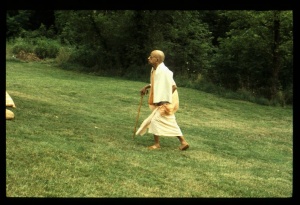CC Adi 6.71: Difference between revisions
No edit summary |
(Vanibot #0054 edit - transform synonyms into clickable links, which search similar occurrences) |
||
| Line 19: | Line 19: | ||
<div class="synonyms"> | <div class="synonyms"> | ||
''hā'' | ''[//vanipedia.org/wiki/Special:VaniSearch?s=hā&tab=syno_o&ds=1 hā]'' — O; ''[//vanipedia.org/wiki/Special:VaniSearch?s=nātha&tab=syno_o&ds=1 nātha]'' — My Lord; ''[//vanipedia.org/wiki/Special:VaniSearch?s=ramaṇa&tab=syno_o&ds=1 ramaṇa]'' — O My husband; ''[//vanipedia.org/wiki/Special:VaniSearch?s=preṣṭha&tab=syno_o&ds=1 preṣṭha]'' — O My most dear one; ''[//vanipedia.org/wiki/Special:VaniSearch?s=kva&tab=syno_o&ds=1 kva] [//vanipedia.org/wiki/Special:VaniSearch?s=asi&tab=syno_o&ds=1 asi] [//vanipedia.org/wiki/Special:VaniSearch?s=kva&tab=syno_o&ds=1 kva] [//vanipedia.org/wiki/Special:VaniSearch?s=asi&tab=syno_o&ds=1 asi]'' — where are You, where are You; ''[//vanipedia.org/wiki/Special:VaniSearch?s=mahā&tab=syno_o&ds=1 mahā]-[//vanipedia.org/wiki/Special:VaniSearch?s=bhuja&tab=syno_o&ds=1 bhuja]'' — O mighty-armed one; ''[//vanipedia.org/wiki/Special:VaniSearch?s=dāsyāḥ&tab=syno_o&ds=1 dāsyāḥ]'' — of the maidservant; ''[//vanipedia.org/wiki/Special:VaniSearch?s=te&tab=syno_o&ds=1 te]'' — You; ''[//vanipedia.org/wiki/Special:VaniSearch?s=kṛpaṇāyāḥ&tab=syno_o&ds=1 kṛpaṇāyāḥ]'' — very much aggrieved by Your absence; ''[//vanipedia.org/wiki/Special:VaniSearch?s=me&tab=syno_o&ds=1 me]'' — to Me; ''[//vanipedia.org/wiki/Special:VaniSearch?s=sakhe&tab=syno_o&ds=1 sakhe]'' — O My friend; ''[//vanipedia.org/wiki/Special:VaniSearch?s=darśaya&tab=syno_o&ds=1 darśaya]'' — show; ''[//vanipedia.org/wiki/Special:VaniSearch?s=sannidhim&tab=syno_o&ds=1 sannidhim]'' — nearness to You. | ||
</div> | </div> | ||
Latest revision as of 19:12, 19 February 2024

A.C. Bhaktivedanta Swami Prabhupada
TEXT 71
- hā nātha ramaṇa preṣṭha
- kvāsi kvāsi mahā-bhuja
- dāsyās te kṛpaṇāyā me
- sakhe darśaya sannidhim
SYNONYMS
hā — O; nātha — My Lord; ramaṇa — O My husband; preṣṭha — O My most dear one; kva asi kva asi — where are You, where are You; mahā-bhuja — O mighty-armed one; dāsyāḥ — of the maidservant; te — You; kṛpaṇāyāḥ — very much aggrieved by Your absence; me — to Me; sakhe — O My friend; darśaya — show; sannidhim — nearness to You.
TRANSLATION
“O My Lord, O My husband, O most dearly beloved! O mighty-armed Lord! Where are You? Where are You? O My friend, reveal Yourself to Your maidservant, who is very much aggrieved by Your absence.”
PURPORT
This verse is quoted from Śrīmad-Bhāgavatam (SB 10.30.39). When the rāsa dance was going on in full swing, Kṛṣṇa left all the gopīs and took only Śrīmatī Rādhārāṇī with Him. At that time all the gopīs lamented, and Śrīmatī Rādhārāṇī, being proud of Her position, requested Kṛṣṇa to carry Her wherever He liked. Then Kṛṣṇa immediately disappeared from the scene, and Śrīmatī Rādhārāṇī began to lament.